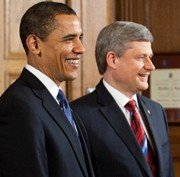
Environmental ministers from across the world have agreed to begin negotiating a treaty that will control global mercury pollution.
More than 140 countries reached the consensus in Nairobi, Kenya, which will include actions to reduce mercury supply, its use in products and processes, and atmospheric mercury emissions, which will ultimately reduce human exposure to mercury globally.
The UN Environment Programme agreement was made possible by a dramatic shift in position by the US under the Obama administration. Under Bush, the US had opposed any legally-binding measures.
Mercury is a heavy metal and neurotoxin that travels long distances. Its most toxic form – methylmercury - accumulates in large predatory fish such as swordfish and works its way up the food chain, with the worst impacts on developing foetuses and small children. It is currently used in thermometers, electrical switches and industrial processes such as paper-making, and is released into the atmosphere from coal power plants.
Symptoms of mercury poisoning may include impaired thyroid and liver function, unsteadiness, vision and hearing problems, numbness, tiredness and memory loss. In the US 1 in 12, or just under five million females, have mercury above the level considered safe by the US Environmental Protection Agency.
UNEP estimates that every kilogramme of mercury taken out of the environment can trigger up to $12,500 worth of social, environmental and human health benefits.
"Only a few weeks ago nations remained divided on how to deal with this major public health threat which touches everyone in every country of the world," said Achim Steiner, UN Under-Secretary General and UNEP Executive Director. "Today we are united on the need for a legally binding instrument and immediate action towards a transition to a low-mercury world.
"I believe this will be a major, confidence - building boost for not only the chemicals and health agenda but right across the environmental challenges of our time from biodiversity loss to climate change."
The preparations for negotiations on the global treaty will start later this year. Discussions will begin in 2010 with a view to completion by 2013.
For more information on mercury, visit zeromercury.org
Source: European Environmental Bureau and United Nations Environment Programme.











No comments:
Post a Comment